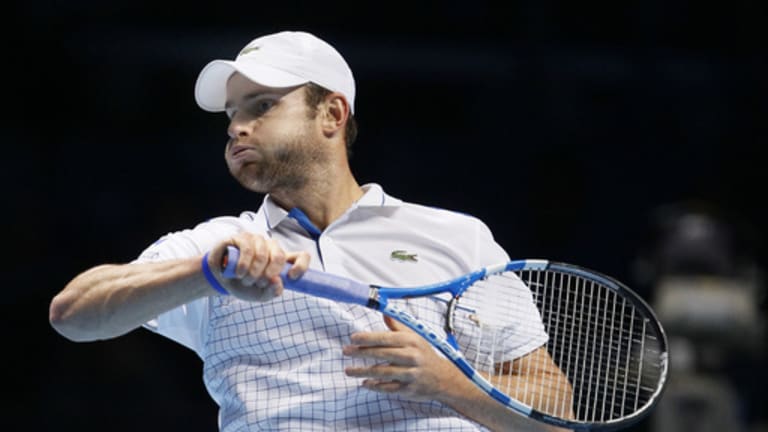by Pete Bodo
Mornin', folks. Just wanted to remind y'all that I'll be doing a Cover it Live chat starting at 1 pm today; all the information you'll need to participate will be available on the Tennis.com home page as the appointed hour approaches. It won't be a very different process from posting a comment here at TW, only the chat will take place at a dedicated webpage and I will have the luxury of reviewing and choosing which questions to field (they'll be the only ones that pop up on your screen). This will probably become a regular feature, and I think plans are to have Steve "the Kicker" Tignor do one or more when he's Down Under covering the Australian Open.
Speaking of which: Next week, I'll be addressing some of the big-picture questions that may be at least partly answered at the Aussie major. Can Rafa earn that fourth consecutive major? Will Kim Clijsters break the hex visited upon her at every major but the U.S. Open? Will we see a new, improved Novak Djokovic? If you have a question you'd like answered, send it along via the Contact tab. If it seems more pertinent than the one I have in mind for any given day, I'll go with it.
One question related to the new year already seems partially answered, despite the fact that no tournaments have been completed yet. Andy Roddick, coming off a frustrating if not awful year in 2010, seems to have recharged his batteries. He's looked fresh, fit and enthusiastic so far in Brisbane, where yesterday he overpowered Marcos Baghdatis, 6-2, 6-3, converting 65 per ent of his first serves and raining down a respectable if not spectacular seven aces.
I suppose the tournament that ought to be getting the most attention, though, is the Qatar ExxonMobil Open in Doha. Seven of the top eight seeds made the quarters in Doha, which is a comment on how quickly everyone seems to be coming out of the gate this new year, but also on the clout of the title sponsor, ExxonMobil. It isn't just the middle eastern shieks and oil speculators who are rolling in the petro-dollars; the tennis players are carrying off their fair share of the booty.
I don't know how much has been doled out to the players in guarantees, but the winner of Doha gets over $175,000 in prize money, which may far less than his appearance fee. In regards to these, my guess is that the two big dogs, Roger and Rafa, must be pulling down $250,000 or better, each. But I don't know what incentive clauses (or punitive ones) are attached to those monies. I think you could probably make a case for making the size of appearance fees, aka "guarantees," public. If you do it with prize-money, why not?
Appearance fees, always paid though sometimes forbidden, have slowly become institutionalized through a long process of something like trial and error. It seems that the ATP tour and tournament promoters have come to grips with the fact that smaller events, especially in off-the-radar places, or calendar slots where the linkage with an upcoming Masters or Grand Slam event is tenuous at best, simply have to induce the stars with something more than prize money.
One reason for that is because of the template linking prize money with the official status of an event. An ATP 250 can't just up and offer, say, $3 million in prize money—something the ExxonMobil event is more than capable of doing. That would skew the pay scale across the board. And it would certainly provide added incentive for the second and third-tier players while diminishing the motivation of the top stars—the ones on whom the quotidien tournaments depend.
In a sense, 250 events with sanctioned appearance fees have a found a sweet spot. The incentive for the top stars to play is obvious, but the fact that they're getting appearance money also gives them a mental cushion: I'm doing this to sharpen up my game and salt away a little extra cash. For those reasons, Doha just doesn't rise on high on my radar as, say, a typical Masters 1000 event, even though Doha may have a better field than some 1000s. I don't mind appearance fees per se—I wish I could offer them here. But I also don't like the lack of transparency, because that often translates to a lack of accountability.
